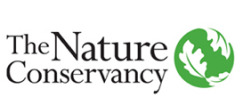A moderated panel discussion, followed by debate with the audience, on how to make deforestation commitments effective.
Deforestation and conversion of natural habitat accounts for around an eighth of global emissions and is the leading driver of biodiversity loss. It was visible as never before as an issue at COP-26 in Glasgow last year, and legislative proposals to regulate embedded deforestation in commodity imports are currently under consideration in both the UK and EU. But since most supply of even the highest forest-risk commodities is deforestation-free, it is straightforward for the companies who dominate import flows to supply EU demand from consolidated commodity landscapes where deforestation and conversion is not an issue. The risk is the creation of segregated supply chains, with the ironic result of ensuring the EU and the UK eliminate deforestation from commodity imports at the same time as removing any impact they have over reducing deforestation on active commodity frontiers. So what can EU and British consumers, companies and regulators do to avoid this risk and be part of the solution? A moderated discussion with experts from Brazil, China, Sweden and the UK will explore the issue and discuss options with the audience.
Confirmed speakers (in alphabetical order)
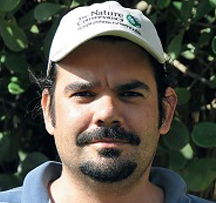
Leandro Baumgarten
Science Lead, Zero Conversion Commodities, The Nature Conservancy
Leandro Baumgarten
Science Lead, Zero Conversion Commodities, The Nature Conservancy
For the last 15 years, Leandro has been dedicated to conservation and understanding the relationship between nature and development. His primary focus is agriculture, landscape ecology, and strategy development. In his career, he worked in NGOs, Environmental State Agencies, and the Brazilian Environmental Ministry, coordinating teams to provide technical and scientific support to conservation initiatives. He joined TNC in 2007, and now he is the Science Lead for the Zero Conversion Commodities Global Strategy. It aims to remove deforestation from the supply chains of beef and soy by engaging companies in the private sector.
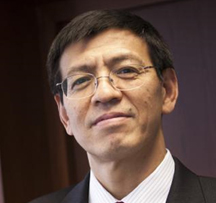
Shenggen Fan
Chair Professor and Dean, Academy of Global Food Economics and Policy, China Agricultural University
Shenggen Fan
Chair Professor and Dean, Academy of Global Food Economics and Policy, China Agricultural University

Toby Gardner
Senior Research Fellow, Stockholm Environment Institute, Lead – TRASE
Toby Gardner
Senior Research Fellow, Stockholm Environment Institute, Lead – TRASE
Toby is a Senior Research Fellow at the Stockholm Environment Institute (SEI), and Director of Trase (www.trase.earth). Toby has twenty years’ experience working on the sustainable development of tropical landscapes. Founded in 2016, Trase is a science-based supply chain transparency initiative that is widely recognized as a ground-breaking source of information and analysis on the sustainability of international trade, with a focus on agricultural commodities linked to deforestation. He has contributed to a number of international environmental policy processes, and has worked extensively on sustainable land-use in the Brazilian Amazon. He has authored more than 120 peer-reviewed publications and in 2012 was awarded the biannual British Ecological Society’s Founders’ Prize for significant contributions to the science of ecology.
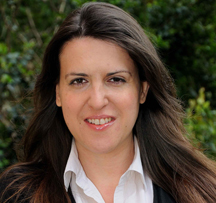
Nathalie Walker
Director, Tropical Forests and Agriculture, National Wildlife Federation
Nathalie Walker
Director, Tropical Forests and Agriculture, National Wildlife Federation
Nathalie has 20 years of experience in researching and addressing drivers of tropical deforestation, working for the National Wildlife Federation (NWF), Global Canopy and Oxford University’s Department of International Development. Her work aims to support multi-stakeholder solutions supporting sustainable commodity supply chains, by making use of new technologies and insights from academic research. Her work at NWF is based on developing partnerships with diverse groups around the world, seeking to understand the challenges of and opportunities for improved land management, livelihoods, food security and habitat conservation. Nathalie advises corporations and governments on forest and land-use policies and how these can support climate mitigation strategies.
Confirmed Moderators (in alphabetical order)
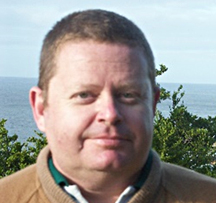
David Cleary
Director, Global Agriculture, The Nature Conservancy
David Cleary
Director, Global Agriculture, The Nature Conservancy
Doctorate in anthropology from Oxford University in 1988, on the social organization of informal sector mining camps in the Amazon, followed by research posts at the universities of Edinburgh, Cambridge and Harvard. He then returned to Brazil for four years to direct an EU-funded project assessing mercury contamination linked to gold mining in the Brazilian Amazon. Joined The Nature Conservancy in 1999, where he set up the Conservancy’s Amazon program. Subsequently based in Rio de Janeiro as director of conservation strategy for Latin America, leading work with the private sector, especially agribusiness, with a focus on eliminating deforestation from supply chains in the beef and soy industries. Returning to the USA in 2010, he took up a new position as the Conservancy’s director of global agriculture, where he has helped the organization develop a sustainable intensification approach to food security, and assisted corporate partners in thinking through land-use issues. He is responsible for supporting and coordinating the Conservancy’s work on agriculture in Africa, China and Latin America, with a strong focus on soil health, water issues and habitat conservation, while continuing to supervise the Conservancy’s work on deforestation. He is the author of several books and articles on development and environmental issues, but was also the first author of the Rough Guide to Brazil. He moved to his native London in 2019.
More Events

Thursday, Jun 26, 2025
Find out moreInternational events
Residence Palace, Brussels (Hybrid Event)
2025: Farming for pollinators: Unlocking economic and ecological gains

Wednesday, Apr 02, 2025
Find out more

